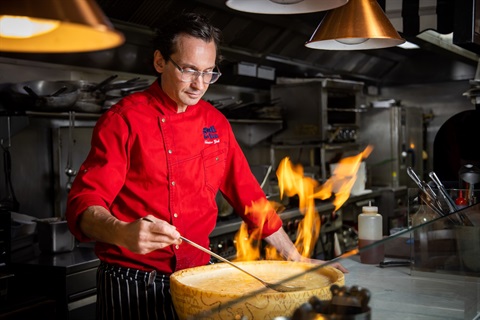Food Safety training

The City of Unley takes food hygiene within our community very seriously. All food businesses have obligations and the City of Unley is keen to assist food businesses to meet these obligations.
The "Do Food Safely" food safety training program will assist food handlers in developing the required skills and knowledge to ensure food is handled in a safe and hygienic manner. This program is easy to follow and a training acknowledgement form can be printed upon completion and be kept as a part of your staff records.
Visit Do Food Safely to conduct the training now.
Further food safety information is available on the SA Health website.
For helpful tips regarding food safety during extreme heat or power failure, please refer to the below:
Food safety during extreme heat
It is important to follow safe food handling practices at all times, especially during periods of extreme heat.
Bacteria grows more quickly on food when the weather is hot and increases the risk of food poisoning. Food poisoning is commonly caused by bacteria from food that has been poorly stored, handled or cooked.
These safety tips are to help you take the proper precautions to keep food safe in the event of extreme heat:
- Wash your hands before preparing food;
- Keep fridges clean and uncluttered, and set at 5°C or below:
- Keep raw meat and poultry separate from other foods in the fridge, in a sealed container/bag and on the lowest shelf to avoid cross contamination;
- Defrost food in the fridge not on the kitchen bench;
- Prepare food close to the time it is going to be served;
- Do not refreeze any food after defrosting. Food should be cooked or thrown out if not used on the day of defrosting;
- Put left overs in the fridge as soon as they stop steaming;
- Never store leftovers of perishable foods out of the fridge and use refrigerated leftovers within 2 to 3 days;
- Do not reheat food more than once; and
- Make sure the fridge door is closed properly at all times and there are no items preventing it from closing fully.
For further enquiries about the safe handling of food contact the Environmental Health team on (08) 8372 5111.
Safe food handling during power failure
It is important to follow safe food handling practices at all times, especially during periods of power failure.
Food poisoning is commonly caused by bacteria from food that has been poorly stored, handled or cooked.
These safety tips are to help you take the proper precautions to keep food safe in the event of power failure:
-
Record the time the power outage started, so you know how long your food has been without refrigeration;
-
Place all refrigerated food together to keep food cool/colder longer;
-
Place meat, poultry or fish in the coldest section of the refrigerator, making sure it does not drip onto fresh fruit and vegetables or other ready to eat food;
-
If necessary, use ice to keep food cold;
-
Keep refrigerator and freezer door closed as much as possible as a closed refrigerator should keep food cold for 4 to 6 hours;
-
A closed, full freezer should keep food frozen for up to 48 hours, half a full freezer should keep food frozen for up to 24 hours;
-
Do not put hot food in your refrigerator or freezer, as this will cause the temperatures inside to increase;
-
If food in the fridge is above 5°C:
- For less than 2 hours, you can re-refrigerate or use the food immediately;
- For between 2 and 4 hours, the food can be used, but must be used immediately;
- For any longer than 4 hours, you must throw the food out; and
- If in doubt, throw it out.
For further enquiries about the safe handling of food contact the Environmental Health team on (08) 8372 5111.
You may also be interested in: